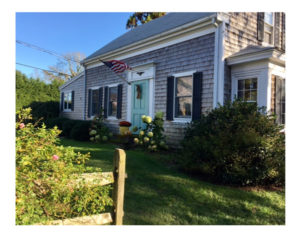We are approaching that time of year again – the holiday season. It is the roughly 5½ weeks between Thanksgiving and New Year’s Day. While for most this is a wonderful time, filled with joy, traditions, special meals, visits with friends and family, for others, it is quite different. For many seniors it can be a lonely time, or a time to reflect on loss. Feelings of joy can be replaced by sadness, anger, and anxiety. Complicating factors also include less daylight, colder temperatures, and financial pressures.
Over six million people age 65 and older have depression. Depression is not a result of aging, as many think. It can have many causes such as the death of a spouse or family member, chronic pain or illness, loss of independence, and loneliness. It is important to look for signs of depression in the seniors we know. Some warning signs include:
• persistent sadness
• loss of interest in favorite hobbies or pastimes
• increased use of alcohol or other drugs
• memory or concentration problems
• fatigue
• changes in sleep patterns
• irritability
• social withdrawal
• neglecting personal care
• unexplained aches and pains
• frequent tearfulness
• weight loss or lack of appetite
• slowed movement or speech
There are many ways in which family members can help seniors fight off holiday depression. If you don’t live near your senior loved ones, schedule regular phone contact or set up Skype/video calls so that you can speak “face to face.” Involve them in your plans, ask them for advice or favorite recipes.
Take time to listen to them and give them an opportunity to share their feelings. If they want to share stories about past holidays, actively listen and reflect with them. Remind them how much they are loved. Often seniors just want to know that someone cares about them and that they are not alone.
If you are close, plan regular visits to long-term care facilities so that they don’t feel abandoned or forgotten. You can bring holiday cards that need addressing and have them help by checking names off your list or putting stamps on the envelopes. You might want to include some cards that they can sign for friends and family.
Spending quality time with your loved ones is especially important during the holidays and it can be a great help for seasonal depression. Look at old holiday pictures, cards or movies with them. Ask to hear their memories of the season.
Offer to take them holiday shopping. Depending on their age and physical condition, they might not be able to go shopping easily on their own. If they can’t get out to shop, offer to help them shop on-line.
Help to decorate their surroundings and keep up with some of their favorite traditions. Plan a family gathering and have them assist in the planning. Drive around the neighborhood looking at holiday lights. Incorporate exercise whenever possible. Go for a walk, dance, toss a ball, play a Wii game. Staying active will help balance moods.
If you feel that your efforts are not improving your senior’s mood or outlook, you may want to visit with their doctor or a professional counselor.
For more information about depression in seniors, please contact Rosewood Manor.
By Penny Majike, Director of Marketing and Admissions for Rosewood Manor
Sponsored Content

























